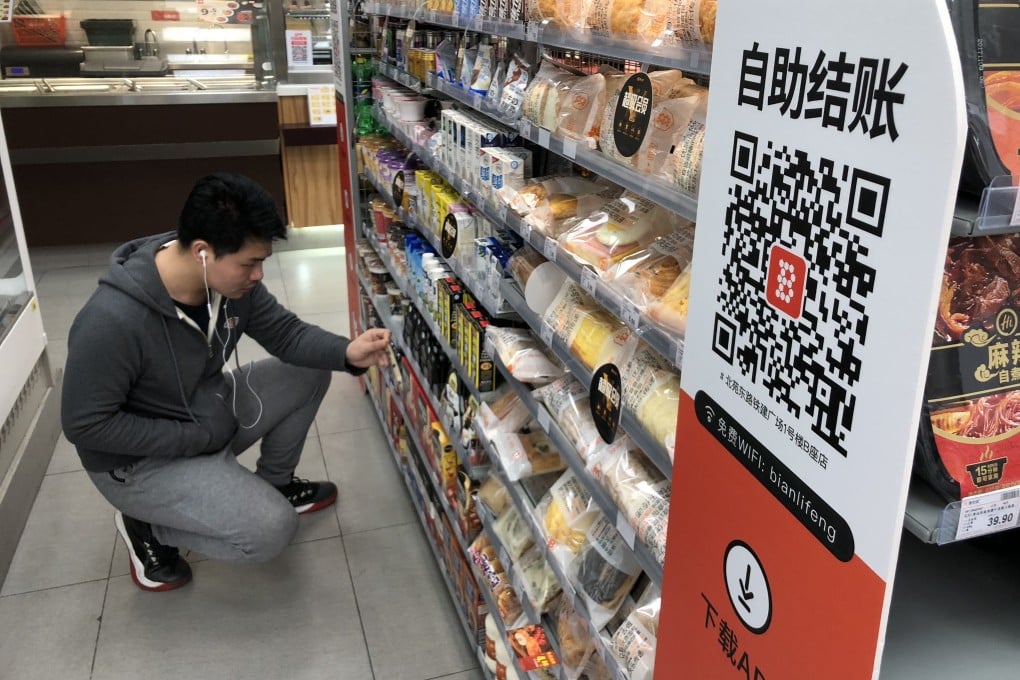Robot-tended Chinese convenience chain Bianlifeng finds limitations of automation
- Founded on the idea that humans are inefficient, the chain has closed 1,300 stores in three years and needs to adjust its model, experts say

Step into a Bianlifeng convenience store in China, and the first thing you are likely to notice is a grey robot roaming among the shelves of snacks and drinks. Next you might note the high number of cameras on the ceiling and a sign advising you that the store is under 24-hour video surveillance.
The setting is emblematic of the company’s attempt to eradicate human decision-making from the operation of its stores. While the robot has no name, it does have the power to boss around the one or two humans on duty, and their pay depends on following its orders.
“Our unstaffed shop means that there are no people in the entire business decision-making process,” co-founder Zhuang Chenchao said in 2019. “We believe that every node that is manned leads to a decrease in overall efficiency.”
However, in 2024 the robot has come to symbolise the flaws in that belief. After growing quickly to 2,800 shops in 20 cities in 2021, Bianlifeng has closed 1,300 stores in the past three years and now serves only nine cities. In that span, the company fell from 11th to 25th on the China Chain Store Management Association’s list of the top 100 convenience stores. And experts say the company must alter its approach to succeed in a competitive market.
Founded in Beijing in 2017 by Zhuang and Wang Zi, Bianlifeng applies a rating system to employee performance, and cuts their pay if scores are too low. The robot and cameras monitor employees, as well as the consumption patterns of customers.
When asked how the robot helps operate the store, a clerk from Beijing who declined to give his name said, “It does not even have hands – the only thing it can do is to deduce our scores.”